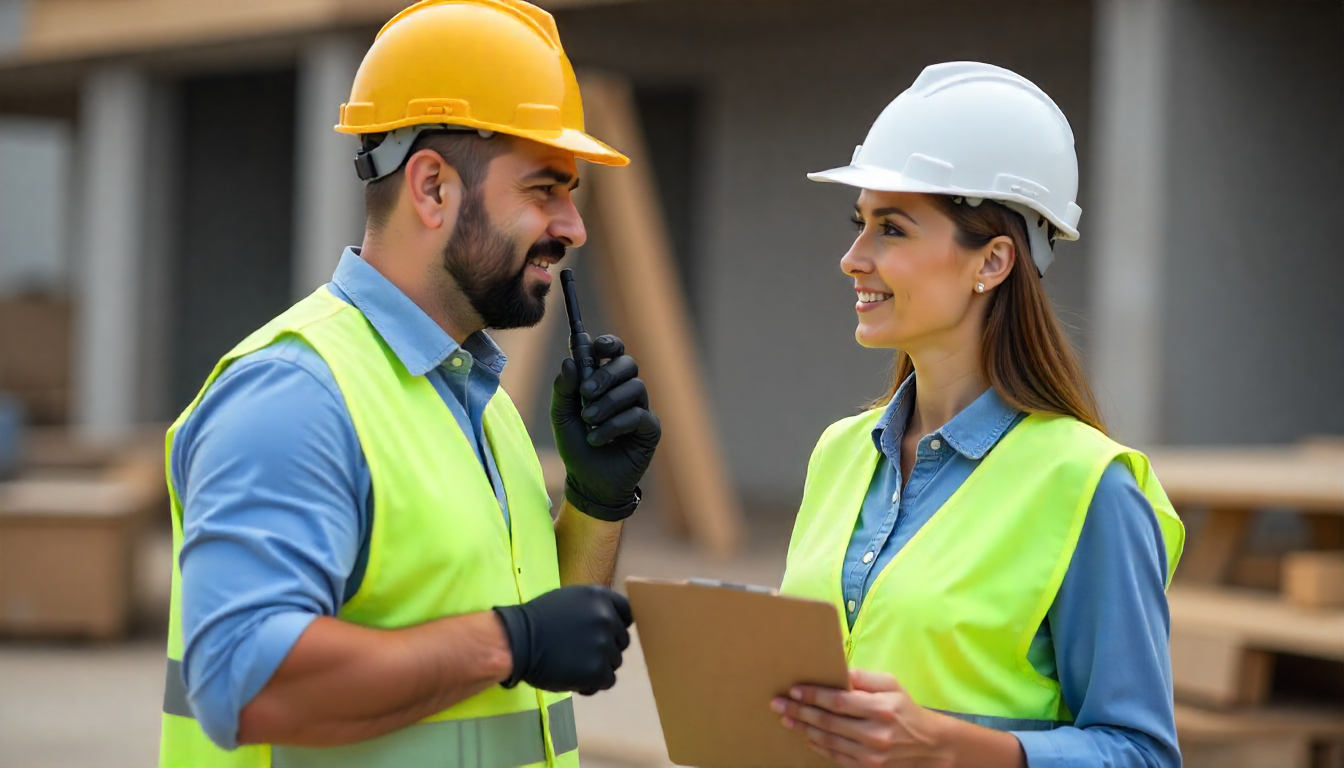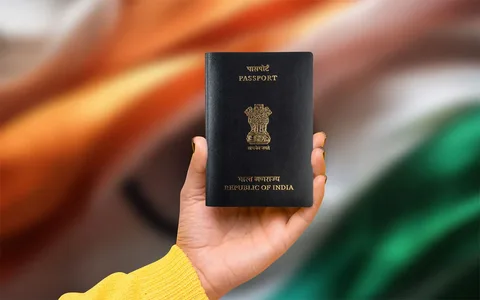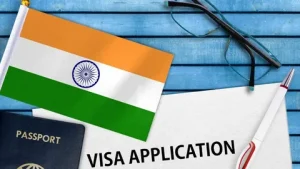Law Government
The Role of Security Guards in Airport Security

Introduction
Airports are bustling hubs where millions of passengers transit every day. Ensuring safety and smooth operations in such dynamic environments falls to many professionals, but airport security guards play a uniquely hands-on role. These trained personnel act as the first line of defense, safeguarding passengers, staff, and facilities against threats. From monitoring access points and screening baggage to responding to emergencies and providing customer assistance, security guards are essential to airport security. In this article, we’ll explore the varied responsibilities of airport security guards, the skills they need, and how their presence keeps air travel safe and efficient.
Importance of Airport Security in Modern Times
Airports are among the most critical infrastructures in any country. They connect regions, support economic development, and facilitate the global movement of people and goods. Due to the massive foot traffic and international scope of operations, airports are also high-risk zones for security threats. Hence, the importance of robust airport security can’t be overstated. Among the frontline personnel ensuring safety are professional security guards. These individuals play a vital role in maintaining order, detecting suspicious activities, and protecting both staff and travelers from potential dangers.
First Line of Defense at Entry Points
Security guards act as the first point of contact at airport entrances and exits. Their job is not only to check access but to evaluate the behavior of every individual entering the facility. Their presence alone is a strong deterrent against illegal activities. They are trained to spot red flags such as nervous behavior, unusual packages, or people loitering. This initial line of defense helps in preventing unauthorised access and maintaining a safe environment from the moment a person enters the airport premises.
Crowd Control During Peak Hours
Airports, especially international terminals, experience high traffic during specific hours or holiday seasons. During these times, it becomes essential to manage the crowd effectively. Security guards assist with queue formation, direct passengers, and ensure that no one jumps the line or creates disturbances. This not only improves the travel experience but also ensures safety and compliance with operational procedures. Good crowd control helps emergency responses to work more efficiently when needed.
Monitoring CCTV and Surveillance Equipment
In modern airports, surveillance technology plays a massive role in maintaining security. However, the human element is still necessary to interpret and act on the information gathered. Security personnel are assigned to monitor CCTV footage in real time. This allows them to respond quickly to incidents, follow suspicious individuals across different terminals, or report threats to relevant authorities. A well-monitored surveillance system handled by trained security staff is key to proactive airport safety.
Supporting Law Enforcement Agencies
Security guards are not police officers, but they often work closely with them in airports. In many cases, they are the first to detect a situation and inform local or federal law enforcement for immediate intervention. Whether it’s a bomb threat, a security breach, or a criminal on the run, security guards provide the essential groundwork that supports faster and more effective action by police or airport security services. Their presence reduces response time during emergencies.
Handling Unattended Baggage and Suspicious Packages
One of the common threats in any airport is unattended baggage. This could either be a genuine mistake by a forgetful passenger or a potential security threat. Trained airport security guards are responsible for identifying such items, isolating the area, and following proper procedures to examine the risk level. Their ability to assess the situation calmly and take prompt action helps prevent panic and ensures the safety of everyone in the vicinity.
Ensuring Safety in Parking Areas and Drop-Off Zones
While terminals are highly monitored, parking areas and drop-off zones are equally important. These zones are vulnerable to car theft, vandalism, and even vehicle-based attacks. Security guards stationed in these areas conduct vehicle checks, monitor entry and exit, and provide assistance to travelers. Their role is essential in minimizing risks in places that might otherwise be overlooked but are just as critical for airport-wide safety.
Screening of Staff and Vendors
Security is not limited to travelers; airport staff, contractors, and vendors also undergo regular checks. Security personnel are in charge of verifying credentials, checking for contraband, and ensuring only authorized personnel gain access to restricted areas. Their vigilance ensures that threats do not come from within, safeguarding runways, control towers, and baggage handling areas. Continuous monitoring also prevents internal sabotage or accidental security lapses.
Managing Lost and Found Operations
Another underrated responsibility of airport security guards is managing lost and found items. By maintaining a documented process for recovering and returning lost property, security teams help maintain passenger trust and operational integrity. They ensure that recovered items are not mistaken as threats and are handled according to the protocol. Their attentiveness in such areas reflects the professionalism expected in modern airport security operations.
Emergency Response and Evacuation Procedures
Security guards are often trained in emergency response protocols, including fire drills, medical emergencies, and evacuation processes. During a crisis, they assist in guiding passengers to safety, providing first aid, and managing panic. Their ability to remain calm under pressure and coordinate with emergency services can significantly reduce injuries and chaos. Their presence is vital in restoring order after an incident occurs.
Passenger Assistance and Information Support
Beyond safety, security guards also play a customer service role. They assist confused or lost passengers, answer questions, and guide individuals to the right gates or service counters. This dual function of security and support improves passenger satisfaction and creates a more secure, welcoming atmosphere. Travelers often feel more at ease knowing trained professionals are available not only for protection but also for assistance.
Dealing with Unruly Passengers
Occasionally, airports face issues with intoxicated or aggressive passengers. Security guards are responsible for diffusing such situations before they escalate. Their training includes verbal de-escalation techniques and, if necessary, physical restraint within legal boundaries. Handling these disruptions quickly and effectively ensures that other travelers remain safe and airport operations continue smoothly without major interruptions.
Custom Security Protocols for International Airports
International airports require a higher level of security due to the diversity of passengers and complex customs regulations. Guards must be familiar with international law, immigration policies, and airport-specific protocols. They may be assigned to secure duty-free zones, customs checkpoints, or even accompany suspicious individuals under surveillance. To maintain such high standards, many airports rely on dedicated professional services like those offered by Security Guard Services in Australia to provide consistent, high-level safety personnel.
Static Security Guards for Restricted Zones
Restricted areas such as hangars, air traffic control centers, and cargo storage require specialized attention. These locations demand constant surveillance and restricted access, which is why static security personnel are commonly deployed. These guards remain posted at one location and ensure that no unauthorized person crosses the security line. Services such as static guard solutions for critical infrastructure play a major role in protecting these sensitive airport zones from internal or external threats.
The Human Element in Advanced Airport Security Systems
Despite technological advancements like biometric scanners and AI-powered surveillance, the human factor remains irreplaceable. Security guards provide situational awareness, emotional intelligence, and instant decision-making that machines cannot replicate. Their role is integral to creating a secure, responsive, and human-centered security ecosystem at airports.
Conclusion
Security guards are indispensable to airport security, combining vigilance, technology, and people skills to protect travelers and facilities. From access control and surveillance to emergency response and customer service, their diverse responsibilities ensure safe, efficient air travel. Rigorous training in legal requirements, security techniques, and first aid equips them to handle any situation. As airports embrace new technologies—like biometrics and drones—security guards will continue to adapt, maintaining their role as the frontline defenders of aviation. Next time you pass through security, remember the dedicated professionals who work tirelessly to keep your journey safe.
FAQs
Q1. What qualifications do airport security guards need?
They usually require a security license, background checks, and airport-specific training.
Q2. Are airport security guards allowed to detain passengers?
They can detain individuals under certain circumstances until law enforcement arrives.
Q3. How are security guards different from police at airports?
Guards maintain order and monitor safety, while police handle legal enforcement and arrests.
Q4. Do security guards work inside and outside the terminal?
Yes, they are stationed throughout all parts of the airport, including parking and restricted zones.
Q5. How do they handle unattended baggage?
They follow protocols by isolating the item, notifying authorities, and evacuating if necessary.
Q6. Are security guards trained in first aid?
Most airport security guards receive basic first aid and emergency response training.
Care
Impact of ISO 45001 Certification on Construction Safety in Kuwait

Introduction
The construction industry in Kuwait has always played a vital role in shaping the country’s growth. From major infrastructure developments and oil & gas facilities to residential and commercial projects, construction companies are constantly under pressure to deliver on time, within budget, and according to strict regulations.
Amid all this progress, one challenge remains constant—ensuring the health and safety of workers on construction sites. Accidents, injuries, and unsafe practices not only put lives at risk but also disrupt projects and damage company reputations.
This is where ISO 45001 certification has started to make a real difference. For construction companies in Kuwait, it is no longer just a certification—it has become a practical tool for building safer sites and stronger businesses.

The Reality of Safety in Kuwait’s Construction Sector
Construction work is risky by nature. Workers deal with heavy equipment, work at heights, electrical systems, and physically demanding tasks, often under extreme weather conditions.
In Kuwait, the long summer months add another layer of risk, making heat stress and fatigue common concerns. Many construction companies also employ a large multinational workforce, which can lead to communication gaps and inconsistent safety practices if not managed properly. These realities make it clear that basic safety rules alone are not enough. A structured and well-managed safety system is essential, and this is exactly what ISO 45001 provides.
What ISO 45001 Really Means for Construction Companies
ISO 45001 is an international standard designed to help organizations manage occupational health and safety in a systematic way. Rather than reacting to accidents after they happen, the standard focuses on identifying risks early and putting controls in place to prevent harm.
For construction companies, this means looking at every activity on-site—excavation, scaffolding, lifting operations, electrical work—and assessing where things could go wrong. It encourages companies to plan ahead, train their teams properly, and monitor safety performance continuously instead of relying on informal or inconsistent methods.
Why ISO 45001 Is Especially Important in Kuwait
Kuwait has clear labor laws and safety regulations, particularly for high-risk industries like construction. However, meeting regulatory requirements alone does not always guarantee a safe working environment. ISO 45001 helps bridge this gap by aligning international best practices with local legal requirements.
Construction companies that implement the standard are better prepared for inspections, audits, and client evaluations. More importantly, they are better equipped to protect their workers in real-life site conditions, not just on paper.
From Rules to Culture: Changing the Safety Mindset
One of the biggest advantages of ISO 45001 is that it encourages a shift in mindset. Instead of treating safety as a checklist or a responsibility of the safety officer alone, the standard promotes shared ownership.
Management is expected to take an active role, supervisors are trained to lead by example, and workers are encouraged to speak up about unsafe conditions. On construction sites in Kuwait, where fast-paced work can sometimes push safety aside, this cultural change can have a powerful impact. When safety becomes part of everyday thinking, accidents naturally decrease.
Reducing Accidents and Project Delays
Every construction company understands the cost of accidents. Injuries lead to medical expenses, compensation claims, work stoppages, and sometimes legal action.
Projects get delayed, and client confidence is affected. ISO 45001 certification helps reduce these risks by introducing clear procedures, regular risk assessments, and continuous monitoring. When hazards are identified early and controlled properly, sites become more organized and predictable. For construction companies in Kuwait, this means smoother project execution and fewer unexpected disruptions.
Supporting Compliance and Avoiding Penalties
Regulatory non-compliance can be costly, both financially and reputationally. ISO 45001 provides a structured way to stay compliant with Kuwait’s occupational health and safety regulations. Documentation, training records, incident reporting, and corrective actions are all part of the system.
Building Trust with Clients and Stakeholders
In today’s construction market, clients are becoming more selective about who they work with. Safety performance is often a key factor in contractor selection, especially for government projects and large private developments in Kuwait. ISO 45001 certification sends a clear message that a company takes worker safety seriously and operates according to international standards. This builds trust with clients, consultants, investors, and even insurance providers. Over time, this trust can translate into repeat business and long-term partnerships.
Standing Out in Competitive Tenders
Competition in Kuwait’s construction sector is intense. Many companies offer similar technical capabilities and pricing. ISO 45001 certification can provide an important edge during tender evaluations. It shows that a company is not only focused on completing the job but also on how the job is done. For clients, this reduces risk. For construction companies, it increases the chances of winning contracts that require strong health and safety credentials.
Improving Worker Confidence and Productivity
Workers are the backbone of any construction project. When employees feel unsafe, productivity suffers. ISO 45001 places strong emphasis on worker participation, ensuring that employees are involved in safety discussions and decision-making.
This approach builds confidence and encourages safer behavior on-site. In Kuwait, where construction companies rely heavily on skilled and experienced workers, improved morale often leads to better performance, lower absenteeism, and reduced staff turnover.
Managing Safety Across a Diverse Workforce
The construction workforce in Kuwait is highly diverse, with workers coming from different countries, cultures, and language backgrounds. This diversity can make safety management challenging if communication is not clear and consistent. ISO 45001 encourages standardized procedures, clear instructions, and proper training tailored to the workforce.
By implementing the standard, construction companies can reduce misunderstandings and ensure that everyone on-site follows the same safety expectations.
Aligning with Kuwait’s Long-Term Development Goals
Kuwait’s vision for the future focuses on sustainable development, modern infrastructure, and improved working conditions. ISO 45001 supports these goals by promoting safer and healthier workplaces.
Construction companies that adopt the standard are not only protecting their workers but also contributing positively to national development. This alignment with government priorities can strengthen relationships with public-sector clients and regulators.
The Certification Process: A Practical Journey
Achieving ISO 45001 certification requires commitment, but it is a manageable process when approached correctly. Most construction companies start with a gap analysis to understand where they stand. This is followed by developing procedures, training employees, and conducting internal audits.
While the process takes time, many companies find that it brings clarity and structure to their operations, making daily site management more effective.
Conclusion
ISO 45001 certification has truly become a game-changer for construction companies in Kuwait. It goes beyond paperwork and policies, bringing real improvements to site safety, workforce morale, and business performance. In an industry where risks are part of everyday work, having a strong, structured safety system is no longer optional.
For construction companies looking to build trust, win contracts, and grow responsibly, ISO 45001 is not just a certification—it is a smarter way of doing business.
Development
Indian Visa Process for Guatemalan and Guinean Citizens

India is a diverse destination attracting travelers for tourism, business, medical care, and cultural exploration. Citizens from Guatemala and Guinea who wish to visit India must understand the visa requirements and application process in advance.
Using official online resources for the Indian Visa for Guatemalan Citizens and the Indian Visa for Guinean Citizens helps applicants determine eligibility, required documents, and the correct visa category, making the entire process smoother and more reliable.

Understanding the Indian e-Visa System
India has introduced an electronic visa system to simplify travel for foreign nationals. The e-Visa allows eligible travelers to apply online without visiting an embassy, saving time and effort. Both Guatemalan and Guinean citizens can benefit from this digital process if they meet the eligibility criteria.
The Indian e-Visa is available for multiple purposes, including tourism, business, medical treatment, and conferences. Each visa type has specific conditions regarding validity, number of entries, and permitted activities.
Indian Visa for Guatemalan Citizens
The Indian Visa for Guatemalan Citizens enables travelers from Guatemala to enter India for short-term stays. Applicants must ensure they apply under the correct category based on their travel purpose.
Key points for Guatemalan citizens include:
• A passport valid for at least six months from the date of arrival in India
• A recent digital photograph and a scanned passport bio page
• Accurate personal and travel details during the online application
Guatemalan applicants are advised to apply well in advance of their intended travel date to allow sufficient processing time.
Indian Visa for Guinean Citizens
The Indian Visa for Guinean Citizens is designed to facilitate travel from Guinea to India for approved purposes. The application process is similar to that for other eligible nationalities, with a strong emphasis on document accuracy.
Important considerations for Guinean citizens include:
• Ensuring passport validity and clear scanned copies
• Selecting the correct e-Visa category
• Providing truthful and complete information in the application form
Careful preparation reduces the likelihood of delays or rejections.
Types of Indian Visas Available
Indian visas are categorized based on travel intent. Common options include:
- Tourist Visa – For sightseeing, cultural visits, and leisure travel
- Business Visa – For meetings, trade activities, and professional engagements
- Medical Visa – For receiving treatment at recognized Indian hospitals
- Conference Visa – For attending government-approved conferences
Applicants must choose the visa type that best matches their travel purpose to avoid complications.
Required Documents for Application
Although specific requirements may vary slightly, most applicants will need to prepare the following documents:
- Valid passport with sufficient validity
• Recent passport-size photograph in digital format
• Proof of travel plans, such as return tickets or accommodation details
• Supporting documents related to the chosen visa category
Having these documents ready before starting the application ensures a smoother submission process.
Step-by-Step Application Process
The Indian e-Visa application process is straightforward and user-friendly. It generally involves:
- Completing the online application form
• Uploading required documents
• Paying the visa fee securely online
• Receiving the approved e-Visa via email
Applicants should review all entered details carefully before final submission.
Tips for a Successful Indian Visa Application
To improve the chances of approval and avoid delays, applicants from Guatemala and Guinea should follow these tips:
- Double-check spelling of names and passport numbers
- Upload clear, high-quality document scans
- Apply at least a few weeks before travel
- Keep a copy of the approved e-Visa for presentation upon arrival
These simple steps can make a significant difference in the overall experience.
Benefits of Applying Online
The Indian e-Visa system offers several advantages:
- Convenience of applying from anywhere
- Faster processing compared to traditional visas
- Reduced paperwork and embassy visits
- Transparent tracking and official confirmation
This makes online application the preferred choice for modern travelers.
Application Process and Required Documentation
The application process for both the Indian Visa for Ghanaian Citizens and Indian Visa for Grenadian Citizens is straightforward but requires attention to detail. Applicants must complete the online form accurately and upload clear digital copies of required documents.
Standard Documentation Requirements
- Valid passport with sufficient remaining validity
- Recent passport-sized photograph
- Scanned copy of passport bio-data page
- Additional documents depending on visa type
Providing accurate information is critical, as inconsistencies can result in processing delays or rejection. It is strongly recommended to submit applications well in advance of the intended travel date.
Important Travel and Compliance Guidelines
Once approved, travelers should carry a copy of their e-Visa approval during their journey. Immigration officials may verify visa details upon arrival. Visitors must adhere strictly to the purpose of travel stated in their application and respect Indian laws and local customs.
Overstaying a visa or engaging in unauthorized activities can lead to penalties, fines, or future travel restrictions. Awareness and compliance help ensure a smooth and enjoyable stay in India.
Advantages of Using Trusted Visa Information Platforms
Using an authorized visa information platform helps applicants understand eligibility criteria, avoid common mistakes, and follow the correct procedures. Clear guidance, updated requirements, and structured information reduce uncertainty, especially for first-time travelers.
Conclusion
The Indian Visa for Ghanaian Citizens and Indian Visa for Grenadian Citizens provide a convenient and efficient way to travel to India for tourism, business, or medical purposes.
By choosing the appropriate visa category, preparing accurate documentation, and complying with visa conditions, travelers can enjoy a seamless entry process and a rewarding experience in India. Proper planning and informed decisions are key to a successful journey.
Business
Starting a Profitable Side Hustle with No Experience: A Guide

Starting a side hustle sounds exciting until one question stops most people before they even begin: “What if I have no experience?”
The truth is, most successful side hustlers didn’t start as experts. They started as beginners who took small, smart steps and learned along the way.
In today’s digital economy, experience is no longer the entry ticket. Skills can be learned, tools are affordable, and opportunities are everywhere. What matters more is choosing the right hustle, taking action, and staying consistent. This guide will show you exactly how to start a profitable side hustle even if you’re starting from zero.

Why You Don’t Need Experience to Start a Side Hustle
Experience is helpful, but it’s not required. Many modern side hustles are built around problem-solving, creativity, or simple execution rather than formal qualifications. Platforms, marketplaces, and automation tools have removed many barriers that existed in the past.
People pay for results, not resumes. If you can help someone save time, earn money, learn something, or solve a problem, you already have the foundation for a side hustle. This is the mindset followed by many Side Hustle Money Makers who built income streams while learning as they went.
Step 1: Understand Your Starting Point
Before choosing any side hustle, you need clarity about your lifestyle. Ask yourself how many hours per week you can realistically give, whether you want active income or something scalable, and what level of risk you’re comfortable with.
A profitable side hustle fits into your life, not the other way around. Someone working full-time may prefer flexible online work, while others may enjoy weekend-based hustles. There’s no one-size-fits-all option, which is why understanding yourself comes first.
Step 2: Choose a Beginner-Friendly Side Hustle
When you have no experience, simplicity is your best friend. The best beginner side hustles usually have three qualities: low startup cost, easy learning curve, and clear demand.
Examples include freelancing simple services, content creation, affiliate marketing, print-on-demand, virtual assistance, social media management, or selling digital products like guides or templates. None of these require prior expertise, only a willingness to learn and practice.
Many Side Hustle Money Makers started with basic services and gradually increased their income by improving skills and pricing over time.
Step 3: Learn Only What You Need to Get Started
One of the biggest mistakes beginners make is over-learning. You don’t have to perfect everything before starting. Instead, focus on learning just enough to take your first step.
Free resources like tutorials, blogs, videos, and online communities are more than enough to get started. As you gain experience, you can deepen your knowledge. Learning while earning is far more effective than endless preparation.
Remember, action creates clarity. Your first attempt won’t be perfect, and that’s completely fine.
Step 4: Start Small and Validate Fast
You don’t need a big investment or a perfect setup. Start with the smallest possible version of your idea. Offer a service to one client, publish one piece of content, or test one product idea.
Early feedback is valuable. It tells you what works, what doesn’t, and what people are willing to pay for. Many profitable side hustles fail not because the idea was bad, but because people waited too long to test it.
Side Hustle Money Makers focus on speed and learning rather than perfection.
Step 5: Build Consistency Before Scaling
Consistency beats talent in the side hustle world. Showing up regularly builds momentum, confidence, and results. Even one hour a day can compound into something meaningful over time.
Instead of chasing new ideas every week, commit to one hustle for at least 60 to 90 days. This allows you to understand the market, improve your skills, and see real progress. Most people quit too early, which is why those who stay consistent stand out.
Step 6: Use Free and Low-Cost Tools
Technology has made side hustling more accessible than ever. Free tools can help you design, market, communicate, and deliver without spending much money.
You can create websites, manage projects, schedule content, and even automate tasks using beginner-friendly platforms. Don’t wait for premium tools before earning your first dollar. Upgrade only when your hustle starts generating income.
Smart use of tools is a common trait among successful Side Hustle Money Makers.
Step 7: Monetize Early and Improve Later
Many beginners delay monetization because they feel “not ready.” This mindset keeps people stuck. You don’t need to be perfect to charge for your work. You just need to provide value.
Start with fair beginner pricing and improve as you gain experience. Each paid project teaches you more than any course ever will. Income also motivates you to keep going, which is essential in the early stages.
Step 8: Avoid Common Beginner Mistakes
One common mistake is trying to do too much at once. Focus on one platform, one offer, and one audience. Another mistake is comparing your beginning to someone else’s middle. Everyone starts somewhere.
Lack of patience is also a major issue. Side hustles rarely explode overnight. They grow steadily through effort, learning, and persistence. Treat your side hustle like a long-term asset, not a lottery ticket.
Step 9: Turn Your Side Hustle into a System
Once you start seeing results, look for ways to simplify and systemize your work. Templates, processes, and automation save time and reduce stress. This is how a side hustle becomes sustainable and scalable.
Over time, you may even replace your main income or create multiple income streams. Many Side Hustle Money Makers reach this stage by focusing on systems rather than working harder.
Final Thoughts
Starting a profitable side hustle with no experience is not only possible, it’s becoming the norm. The internet rewards action, consistency, and problem-solving more than formal credentials.
You don’t need to be an expert to begin. You become an expert by beginning. Choose something simple, take action, learn as you go, and stay consistent. If you do that, your side hustle can grow into a powerful source of income and freedom.
-
Business3 years ago
Cybersecurity Consulting Company SequelNet Provides Critical IT Support Services to Medical Billing Firm, Medical Optimum
-
Business3 years ago
Team Communication Software Transforms Operations at Finance Innovate
-
Business3 years ago
Project Management Tool Transforms Long Island Business
-
Business2 years ago
How Alleviate Poverty Utilized IPPBX’s All-in-One Solution to Transform Lives in New York City
-
health3 years ago
Breast Cancer: The Imperative Role of Mammograms in Screening and Early Detection
-
Sports3 years ago
Unstoppable Collaboration: D.C.’s Citi Open and Silicon Valley Classic Unite to Propel Women’s Tennis to New Heights
-
Art /Entertainment3 years ago
Embracing Renewal: Sizdabedar Celebrations Unite Iranians in New York’s Eisenhower Park
-
Finance3 years ago
The Benefits of Starting a Side Hustle for Financial Freedom






























